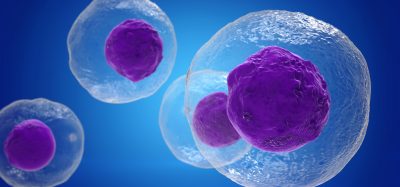Potential new target found for inflammatory disease treatment
Posted: 8 November 2019 | Rachael Harper (Drug Target Review) | No comments yet
Molecules made by immune cells to transport sodium lactate could be a target for treatment to stop the lactate build-up in chronic inflammatory disorders.


In a study that focused on the role of lactate in how the body’s immune system responds to inflammation, researchers have found a potential new target to treat inflammatory disease.
The researchers, who are experts in cellular metabolism, are from the UK University of Birmingham‘s Institute of Inflammation and Ageing, Institute of Cardiovascular Sciences and Institute of Metabolism and Systems Research.
A high lactate level in the blood means that a disease or condition is causing lactate to accumulate. In general, a greater increase in lactate means a greater severity of the condition.
“So far, most studies have focused on the role of metabolic pathways in the establishment of the immune response,” Dr Michelangelo Certo, of the University of Birmingham. “Lactate has mainly been seen as a by-product of metabolism or as a biomarker in critical care at best, rather than a bioactive molecule and its functional effects have thus been neglected for a long time.
“However, far from being inert, the accumulation of lactate in the cells, molecules and structures of tissue is found in both inflammatory disease and cancer.”
In this study, the researchers analysed the response of immune cells to lactate in chronic inflammation caused by rheumatoid arthritis.
The accumulation of lactate in the cells, molecules and structures of tissue is found in both inflammatory disease and cancer”
In their research, which involved the use of mice, they also used blood from healthy patients and patients with arthritis, as well as joint biopsies and tonsils removed following tonsillectomies due to the fact that inflamed tonsils share similarities with an inflamed joint.
“We identified the pathway initiated by lactate build-up in inflamed tissue that exacerbates the inflammatory response,” explained Dr Claudio Mauro, of the University of Birmingham’s Institute of Inflammation and Ageing. “We also now can provide evidence that molecules made by immune cells to transport sodium lactate – the sodium salt of lactic acid – could be a target for treatment to stop this lactate build-up in chronic inflammatory disorders.”
The study was published in Cell Metabolism.
Related topics
Immunology, Research & Development, Target Molecule, Targets
Related conditions
Inflammatory disease
Related organisations
University of Birmingham
Related people
Dr Claudio Mauro, Dr Michelangelo Certo








